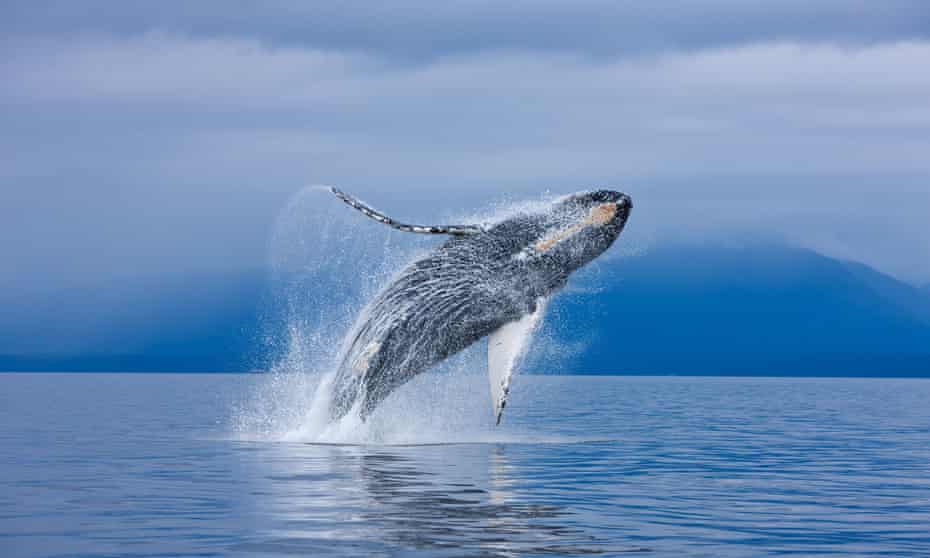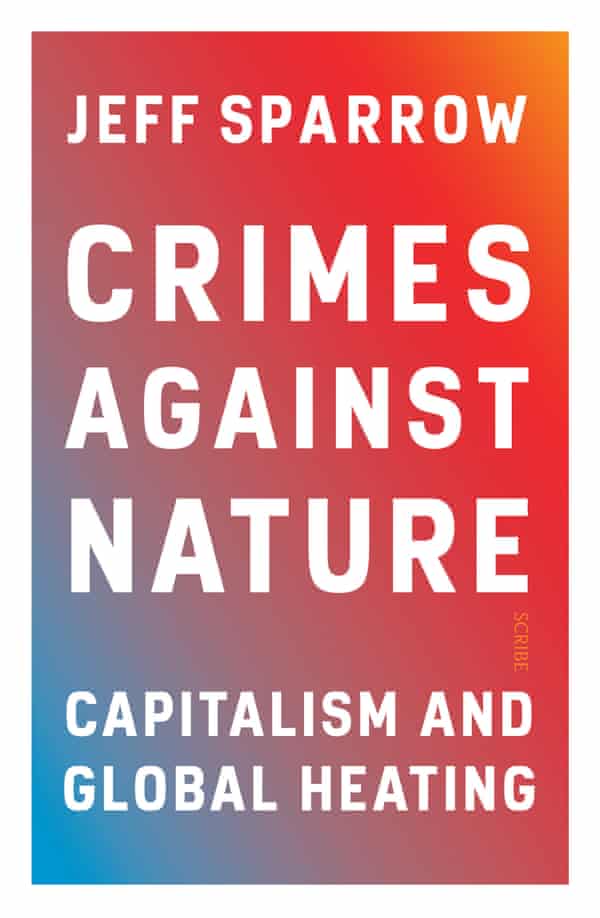Crimes Against Nature: $2m whales, wartime Britain and the economics of saving the planet

We can respond to environmental crisis with good planning, Jeff Sparrow writes in an extract from his book

In his book Capitalist Realism, Mark Fisher diagnoses the dominance of a ‘business ontology’, a mentality that can only conceive of human activities insofar as they’re profitable.
For instance, researchers associated with the International Monetary Fund recently noted that whales – especially great whales – capture from the atmosphere considerable amounts of carbon, which they store in their huge bodies and take down to the ocean floor when they die. A single great whale can thus sequester 33 tons of carbon dioxide – a not-insignificant quantity, given that a tree only absorbs 22kg annually. Whales also feed populations of phytoplankton with their waste, and, globally, those phytoplankton capture some 37bn metric tons of carbon dioxide, four times the emissions sequestered by the jungles of the Amazon.
Whales, in other words, protect our climate. That makes their continuing decline a threat to the planet – and a warning about how one industrial process (such as whaling) can exacerbate the effects of another (the fossil fuel industry) in unexpected and disastrous ways.
But that isn’t the IMF’s conclusion. For its researchers, the relationship between whales and carbon establishes merely that the creatures must be commodified. Once priced – the IMF estimates each whale as worth about $2m – they can be enlisted in a market constructed to compensate those countries, businesses, and individuals otherwise financially invested in their extinction. Indeed, the IMF and the World Bank are, we are told, already “well placed to help governments integrate the macroeconomic benefit that whales provide in mitigating climate change, as well as the cost of measures to protect the whales, into their macro-fiscal frameworks”.
The IMF’s paper simply assumes that, without price signals, people will exterminate whales, with human behaviour determined by rational profit maximisation and nothing else. It treats markets as more natural than nature itself; it considers the ocean’s inability to evolve an adequate pricing measure a failing that benevolent economists must carefully amend.
Such is the profound strangeness of our current moment, a strangeness that often escapes our recognition. If you or I encountered a whale stranded on the beach, we wouldn’t construct a market to reward its potential saviour. We would do our best to push it back into the sea.
Why don’t we adopt the same approach to the environment as a whole? Why not democratically and rationally decide the measures needed to save the planet, and then … do them?
Why not, in other words, plan?
Each year, the world spends over $1,917bn on guns, bombs, and other military equipment. The comparable figure on advertising is some $325bn. Those staggering numbers represent a mere fraction of what we could direct immediately to environmental programs on land, sea, and air. We could begin systemic decarbonisation, closing down coal-fired power stations, and replacing fossil fuels with electricity from renewables such as solar, using the process to reduce rather than increase our energy needs. We could massively expand low-carbon public transport, so that efficient, easy-to-use and convenient electric trains and trams replaced internal combustion engines. We could replan our cities and towns for human convenience rather than for the use of automobiles; we could establish methods of recycling and re-use that genuinely reduced material throughputs.
Even formulating that list makes one weep with frustration. We know what’s required and yet, all along the line, we’re impeded by the imperatives of capital and the insistence on blind, mathematical, destructive growth. Hence Naomi Klein’s anguished recognition that “a serious response to the climate threat involves recovering an art that has been relentlessly vilified … planning. Lots and lots of planning”.
A planned economy offers an alternative: a fundamentally different way to respond to environmental crisis.
What would that mean?
Consider Britain during the second world war, a period in which a war cabinet essentially took charge of the entire economy and directed it to the achievement of victory. During that time, the government did not establish a single overall blueprint. Instead, it decided on general priorities and rough plans for different economic sectors, which were then constantly updated by a process of approximation and negotiation with those responsible for their implementation. Though the economy was mostly geared to heavy industry, the resources reserved for civil consumption were distributed, the economist Pat Devine explains, “through consumer surveys and by watching statistics of stocks and sales […] with production […] then organised to meet demand”.
The system worked, facilitating a remarkable – and remarkably rapid – transition from peacetime conditions to a war economy. In 1938, for instance, Britain had allocated 7.4% of national expenditure to rearmament – and, five years later, that figure had shot up to 55.3%. At the height of the conflict, something like half the working population was engaged in the armed forces, the munitions industries, or other fields essential to the war effort. As Austin Robinson noted, “the power to make rapid changes in the disposition of the nation’s resources was the greatest war-winning weapon of all”.

The unbridled authority enjoyed by the British state at that time led the environmental scientist James Lovelock to propose, in his 2009 book The Vanishing Face of Gaia, the temporary suspension of democratic government so as to allow a second world war-style emergency climate intervention.
But Lovelock totally misunderstood what made wartime planning possible. The system worked despite and not because of authoritarianism. As Pat Devine argues, its success depended on two central factors: first, the active support of the population, and, second, the provision of adequate information to the planners. These were, of course, intimately connected. Despite the privations of the war, the commitment of ordinary people to the defeat of the Nazis meant that, by and large, they accepted government priorities, and they spoke honestly about how and where plans required adjustment. The men and women on the shopfloor wanted the economy to succeed; they used their intimate knowledge of each factory to see that it did.
A planned economy does not need military discipline. On the contrary, it relies on a new and much greater freedom.
In the midst of crisis, we can easily forget the wondrous accomplishments of which humans are capable. We can send a rover to Mars; we can identify dinosaur DNA; we can grow artificial meat in laboratories.
Given those capabilities, it’s preposterous to conclude that, as our environment collapses around us, we must adjust nature to a failing economic system. We don’t need to commodify whales. Rather than abasing ourselves before markets, we need urgently to decide our own future, democratically and collectively.
-
This is an edited extract from Crimes Against Nature: Capitalism and Global Heating by Jeff Sparrow (Scribe, $29.99)